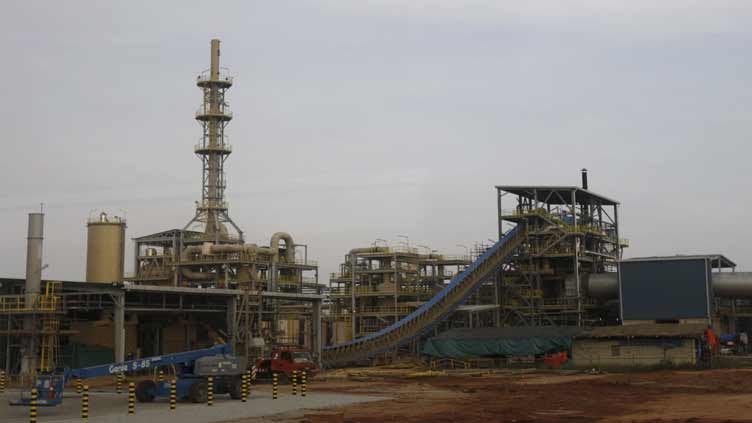Australia's Lynas to upgrade Malaysian rare earth refinery amid dispute over operating license

World
Malaysian court is set to hear in November its application for a stay
KUALA LUMPUR, Malaysia (AP) — Australian miner Lynas Rare Earths said Friday that it will temporarily shut down most of its operations in Malaysia for upgrading as it deals with a legal battle with the Malaysian government over its operating license.
Lynas said in a report to investors that a Malaysian court is set to hear in November its application for a stay to allow it keep operating while other administrative and legal appeals are being heard. It didn’t give an exact date.
The Lynas refinery in Malaysia, its first outside China producing minerals that are crucial to high-tech manufacturing, has been operating in central Pahang state since 2012. But it has been locked in a battle over concerns about radiation from waste accumulating at its plant.
Earlier this year, the government approved the renewal of Lynas’ license for three years until March 2026. But it said Lynas must move its cracking and leaching processes — which produce the radioactive waste from Australian ore — out of Malaysia. It also is not allowed to import raw material with radioactive elements into the country.
It said Lynas has produced approximately more than a million metric tons of radioactive waste since 2012.
Lynas insists its operations are safe and has sought to remove the conditions that it said marked a “significant variation” from the conditions under which it made the initial decision to invest in Malaysia. It has taken its dispute with the government to the Malaysian court and says it is prepared for any outcome.
Most operations at the Malaysian refinery will shut down for the next two months while Lynas prepares to ramp up its downstream operations, the company said.
It said the upgrade is essential if its license is updated to allow the company to continue to import and process raw materials from Jan. 1. Lynas said it plans to also undertake further maintenance work on the cracking and leaching facility, if operation are allowed to resume as normal.
If the license is not extended, Lynas said the additional downstream capacity can be used for a new facility in Kalgoorlie, Australia. Demand for heavy rare earths remain high, largely driven by the global development of electric vehicles.
“Lynas continues to manage operations to optimize outcomes within various scenarios. Key variables include include the operating license conditions in Malaysia and the start-up and commissioning process in Kalgoorlie,” it said.
Rare earths are 17 minerals used to make products such as electric or hybrid vehicles, weapons, flat-screen TVs, mobile phones, mercury-vapor lights and camera lenses. China has about a third of the world’s rare earth reserves but a near monopoly on supplies. Lynas has said its refinery could meet nearly a third of world demand for rare earths, excluding China.
Environmental groups have long campaigned against Lynas’ operations and demanded that the company export its radioactive waste. They contend that the radioactive elements, which include thorium and uranium among others, are not in their natural forms but have been made more dangerous through mechanical and chemical processes.
The only other rare earth refinery in Malaysia — operated by Japan’s Mitsubishi Group in northern Perak state — closed in 1992 following protests and claims that it caused birth defects and leukemia among residents. It is one of Asia’s largest radioactive waste cleanup sites.


